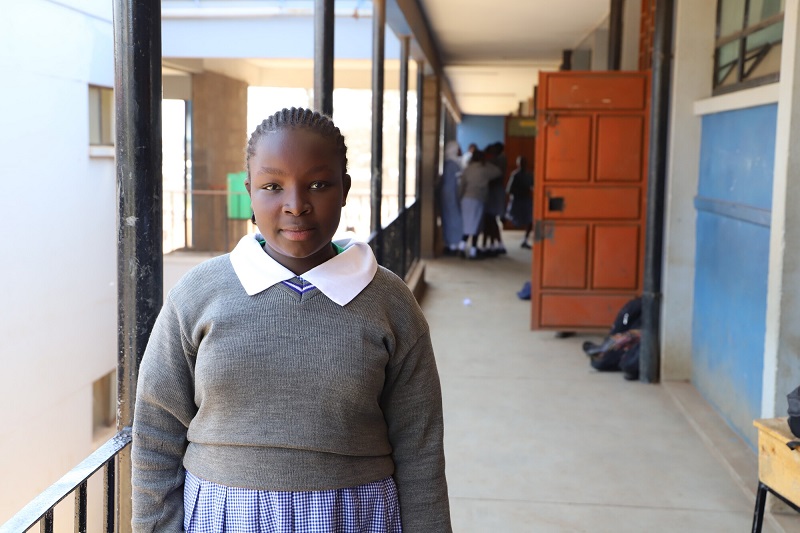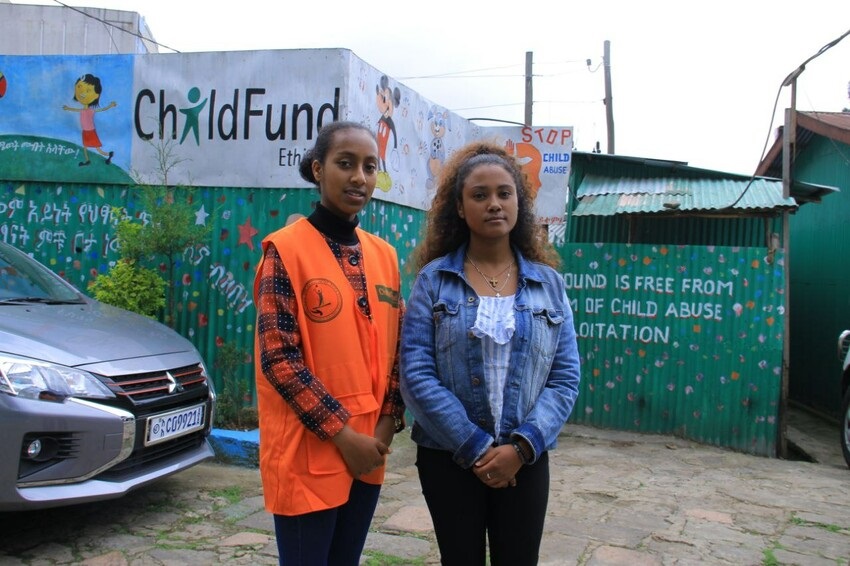Site will be
unavailable for maintenance from June. 4, 11:30 p.m., to June 5, 12:30 a.m. ET. Thank you for your
patience!
Young people explain why connection is key to mental health
Posted on 10/09/2023
Did you know that globally, 1 in 7 young people between the ages of 10 and 19 have been diagnosed with a mental disorder?
In today’s fast-paced, often overstimulating world, it’s easy for us to become mentally and emotionally overwhelmed. That’s why it’s so crucial to pay attention to our mental health just as much as our physical health – and young people are no exception.
Whether it's taking time for self-care, talking to a trusted friend or family member or seeking professional help, young people need access to mental health support just as much as they need regular physicals at the doctor. The problem is that young people don’t always feel safe to ask for help with their mental health when they need it.
Children living in high-poverty areas, or who regularly experience or witness violence, are even more vulnerable to the effects of toxic stress that can result from repeated adverse experiences. These levels of stress can derail healthy brain development and cause long-term mental health challenges. On the other hand, years of research have shown that high-quality social support can actually enhance resilience to stress, serving as a protective buffer for mental health.
 “What I know about teenagers is that they need someone to talk with about their problems, like professional counselors, teachers, parents, guardians and best friends, before it is too late,” says Ruth, 13, in Kenya.
“What I know about teenagers is that they need someone to talk with about their problems, like professional counselors, teachers, parents, guardians and best friends, before it is too late,” says Ruth, 13, in Kenya.
World Mental Health Day
October 10 is World Mental Health Day, a day dedicated to raising awareness about mental health issues and the importance of maintaining mental well-being. It is an opportunity for us to reflect on our own mental health, gain knowledge about how to better care for ourselves, and reach out to those who may be struggling – especially young people. Despite the stigma surrounding mental illness, more conversations on the subject are taking place, slowly breaking down those barriers so that children and teens can get the support they need.
This World Mental Health Day, we asked young people around the world to tell us what they think about mental health and the role that connection plays in it.
Jennifer, 18, Philippines
“People think that if you’re young … the world gives you fewer problems,” Jennifer says. “But in reality, a lot of youth suffer from their problems. What can help is joining activities and programs in the community. Same with what I do. I am a member and server in our church. It can really help the youth. It can help us gain friends and help us interact with positive people. Find someone you can trust, someone you can share your problems with or your family, because they are the first ones who can help us.”
Hanna, 19, Ethiopia
“For me, mental health means social and emotional well-being of a person,” says Hanna, who volunteers as a peer educator with ChildFund in her community. Through her work, Hanna interacts face-to-face with children and teens who are going through hard times mentally and emotionally. “In our community, unemployment, peer pressure and addictions are the main causes of mental health problems for young people. But mental health problems are not seen as health impairments. They are mostly seen as a spiritual problem. That’s why young people with mental problems don’t always get the proper treatment.”
 Hanna (right) and Rediet, ChildFund Ethiopia health and community volunteers.
Hanna (right) and Rediet, ChildFund Ethiopia health and community volunteers.
Nash 23, Philippines
Nash says that many people believe young people’s mental health challenges are attention-seeking. “Young people have a lot going on in their lives, and it's dismissive to assume that it is attention-seeking,” she says. “Everyone has different ways of expressing how they are feeling, whether it's acting out or keeping everything bottled up. We must believe that however they are behaving, maybe they are trying to tell us they need help. We can’t dismiss them – we have a duty to listen to what's going on and work out how we can support them.”
Innoce, 18, Zambia
Innoce says that the most common mental health issue in his community is anxiety. “For instance, I’m in grade 12. I’ve started being anxious about what I want to be,” he explains. “Will my parents take me to college? Will they [be able to] afford to buy all the needs? … You become anxious [that you will have to] say, ‘Now my goals have been shattered, my dreams have been shattered.’”
Melany, 19, Ecuador
Melany says that in her community, support from family and community is a key determinant of how resilient children and teens are to mental health challenges. “Sometimes young people, to feel good, may enter a world that they can’t get out of,” she says. “For example, gangs, or the world of drugs – it’s usually because they don’t feel supported by their family, or they don’t find the support they need. They feel lonely or stressed. Other young people, on the other hand, may opt for activities that they enjoy – for example, playing a sport – and they also feel welcome at home. They feel the support of other people, and so they try to take care of their mental health.”
Mako, 22, Philippines
“I think what most people don’t understand about the mental health of young people like me or those younger than me is that mental health is important, even to us,” Mako says. “Because there’s a stigma in our society where, just because you are a child, you don’t need attention, or you don’t need to be taken seriously, or your needs are neglected. But as a youth leader, I learned that children’s and youth’s mental health should also be given attention because we serve as second-liners in our society. We are the ones who will be continuing this generation and because of that, our needs should also be given attention, especially when it comes to mental health.”
Prioritizing children's mental health
As these wise young people share, it's so important for children and teens to know that it's okay to seek help if they are struggling. A supportive environment full of opportunities for social connection can provide just that.
If you’d like to be part of that supportive environment for a child somewhere in the world, consider making the decision to sponsor a child. You’ll be able to encourage them directly through your letters and gifts, and you’ll see the impact you’ll make in their lives firsthand.
And if you need support for yourself, remember: Seeking help is a sign of strength, not weakness, and there are many resources available to you to support your mental health. Take care of yourself first – you matter!
Loading...

